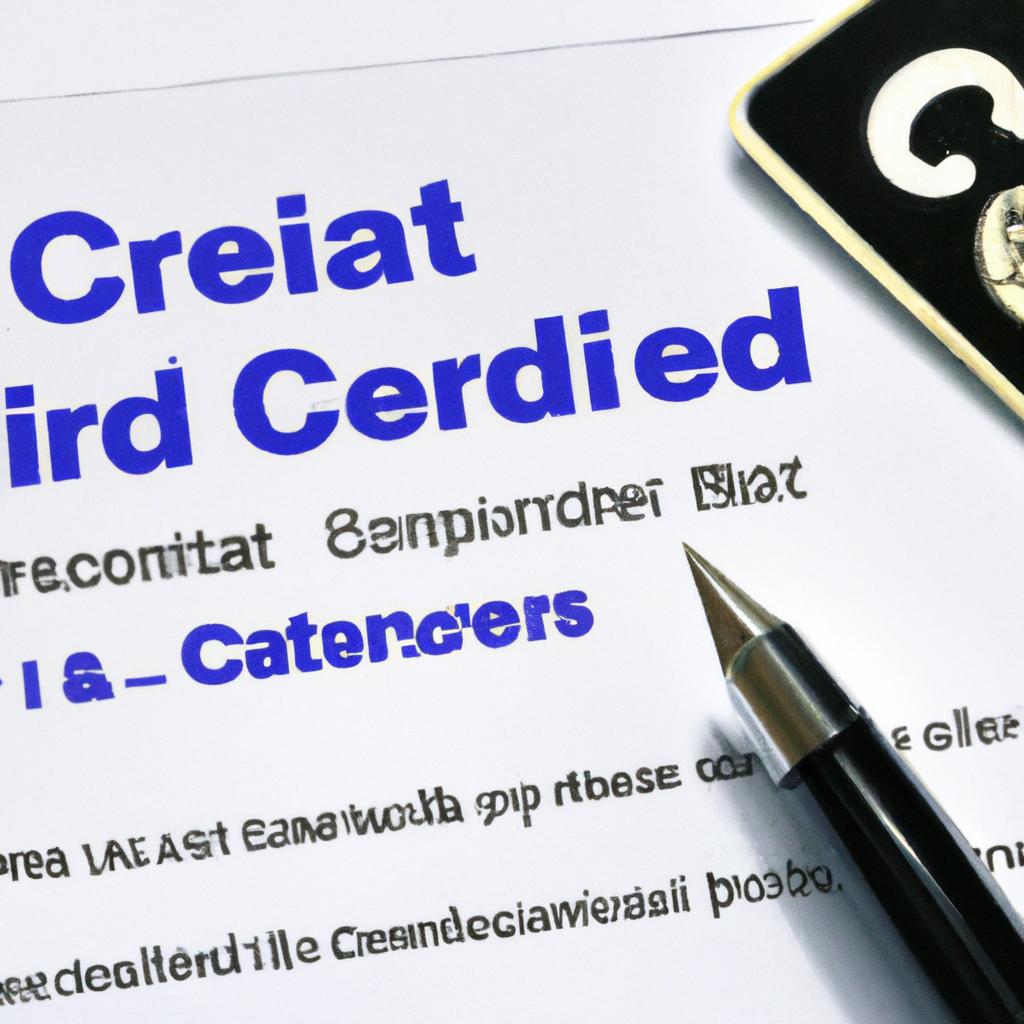In the complex and intricate realm of financial matters, the reporting of a deceased individual’s passing to credit bureaus is a crucial step that must not be overlooked. As experienced attorneys at Morgan Legal Group in New York City, we understand the importance of navigating the intricate legal processes involved in estate planning and probate. In this article, we will delve into the nuanced procedures and implications of reporting death to credit bureaus, shedding light on the potential challenges and considerations that arise in this sensitive area of law. Join us as we explore the legal intricacies surrounding the reporting of death to credit bureaus and arm yourself with the knowledge necessary to navigate this complex terrain with confidence and clarity.
Understanding the Implications of Reporting a Death to Credit Bureaus
When a loved one passes away, there are many tasks that need to be addressed, and one important aspect to consider is reporting the death to credit bureaus. This crucial step can have significant implications on the deceased individual’s credit history and can impact the estate settlement process. is essential for proper estate administration.
**Key considerations when reporting a death to credit bureaus:**
-
Identity theft prevention: Notifying credit bureaus of the death can help prevent potential identity theft issues and unauthorized access to the deceased individual’s credit information.
-
Closing accounts: Reporting the death to credit bureaus can expedite the process of closing credit accounts in the deceased individual’s name, preventing any misuse of credit.
-
Credit report accuracy: Ensuring that the credit report accurately reflects the deceased individual’s status can prevent any future complications during the estate settlement process.

Navigating the Process of Notifying Credit Bureaus of a Loved One’s Passing
One of the crucial steps in handling the affairs of a deceased loved one is notifying credit bureaus of their passing. This process is important to prevent identity theft and unauthorized use of the deceased individual’s credit information. When navigating the process of reporting a death to credit bureaus, it is essential to follow specific procedures to ensure a smooth and efficient resolution.
Here are some key steps to take when notifying credit bureaus of a loved one’s passing:
- Obtain copies of the death certificate to provide as proof of the deceased individual’s passing.
- Contact each of the three major credit bureaus – Equifax, Experian, and TransUnion – to inform them of the death and request that the deceased individual’s credit report be flagged as deceased.
- Provide the necessary information, such as the deceased individual’s full name, date of birth, Social Security number, and date of death, to each credit bureau to update their records accordingly.

Key Considerations Before Reporting a Death to Credit Bureaus
When reporting the death of a loved one to credit bureaus, there are several key considerations to keep in mind to ensure a smooth process. First and foremost, it is essential to gather all relevant documentation, including the death certificate and any legal documents proving your authority to act on behalf of the deceased’s estate. This documentation will be crucial in verifying the information you provide to the credit bureaus.
Additionally, it is important to notify all three major credit bureaus – Equifax, Experian, and TransUnion – of the death. Each bureau has specific procedures for reporting a death, so be sure to follow their guidelines carefully. Furthermore, consider placing a security freeze on your loved one’s credit report to prevent identity theft and unauthorized activity. By taking these steps, you can protect your loved one’s credit history and prevent any potential issues down the line.

Best Practices for Handling the Reporting of a Deceased Individual to Credit Bureaus
When handling the reporting of a deceased individual to credit bureaus, it is crucial to follow the best practices to ensure a smooth process and avoid any complications. One important step is to gather all necessary documentation, such as the death certificate and proof of authority to handle the deceased individual’s affairs. This documentation is vital for notifying the credit bureaus of the individual’s passing and preventing any potential identity theft.
Another key practice is to contact each of the three major credit bureaus – Equifax, Experian, and TransUnion – to report the individual’s death. It is essential to provide the bureaus with the necessary information, such as the deceased individual’s full name, date of birth, Social Security number, and date of death. By following these best practices and promptly notifying the credit bureaus of the individual’s passing, you can help protect the deceased individual’s identity and prevent any fraudulent activity from occurring.
Q&A
Q: What happens to a person’s credit report when they pass away?
A: When a person dies, their credit report is typically updated to reflect their deceased status.Q: Who is responsible for reporting a death to credit bureaus?
A: Typically, it is the responsibility of the deceased person’s family or executor of their estate to report the death to the credit bureaus.Q: Why is it important to report a death to credit bureaus?
A: Reporting a death to credit bureaus ensures that the deceased person’s credit accounts are closed and prevents identity theft.Q: How can someone report a death to credit bureaus?
A: The family or executor can contact each of the three major credit bureaus – Equifax, Experian, and TransUnion – by mail, phone, or online to report the death.Q: What information is needed to report a death to credit bureaus?
A: When reporting a death, the person’s full name, date of birth, Social Security number, and a copy of the death certificate are typically required.Q: What happens if a death is not reported to credit bureaus?
A: If a death is not reported to credit bureaus, the deceased person’s credit accounts may remain open, leading to potential identity theft and fraudulent activity. To Wrap It Up
In conclusion, reporting a loved one’s death to credit bureaus may seem like a daunting task, but it is an important step in protecting their identity and preventing fraud. By following the proper procedures and notifying the necessary agencies, you can ensure that their financial affairs are handled with care and respect. Remember, while mourning the loss of a loved one is never easy, taking care of these important details can bring a sense of closure and peace of mind during a difficult time. Thank you for reading.
 “Reporting Death to Credit Bureaus: A Guide for Family Members and Executors”
“Reporting Death to Credit Bureaus: A Guide for Family Members and Executors”Losing a loved one is never easy, and it can bring a great deal of emotional and logistical challenges. Among the many tasks to be handled after a death, one important but often overlooked task is reporting the death to credit bureaus. This step ensures that your loved one’s credit accounts are properly marked as “deceased” and prevents any potential identity theft or fraud. In this article, we’ll provide you with a comprehensive guide on how to report a death to credit bureaus and the importance of doing so.
Understanding Credit Bureaus
Before we dive into reporting a death to credit bureaus, it’s important to understand what credit bureaus are and why they matter. Credit bureaus, also known as credit reporting agencies, are companies that collect and maintain information on individual’s credit history and financial transactions. The three major credit bureaus in the United States are Equifax, Experian, and TransUnion.
Credit bureaus play a crucial role in the credit industry as they assess the creditworthiness of individuals and determine their credit scores. This information is then used by lenders, landlords, insurance companies, and other businesses to make decisions about granting credit or services. As such, ensuring the accuracy and integrity of credit reports is vital, even in the event of a death.
Why Report a Death to Credit Bureaus?
The death of a loved one can be a difficult and overwhelming time, and reporting their death to credit bureaus may not be a top priority. However, it is an essential step to take as soon as possible to protect the deceased’s credit and prevent any potential harm. Here are some reasons why reporting a death to credit bureaus is important:
- Prevent Identity Theft and Fraud
Identity theft and fraud are a constant threat in today’s digital age, and unfortunately, death does not make a person immune to such crimes. In fact, deceased individuals are often prime targets for identity theft as their personal information is still active and can be easily accessed. By reporting a death to credit bureaus, you can prevent any unauthorized use of your loved one’s identity and financial information.
- Stop Creditors from Contacting You
When a person passes away, their credit accounts become inactive. However, this doesn’t stop creditors from trying to collect any outstanding debts from the deceased individual’s family members or estate. By reporting the death to credit bureaus, you can stop creditors from contacting you and avoid any unnecessary harassment or collection attempts.
- Protect the Deceased’s Credit Score
With the deceased’s credit accounts marked as “deceased,” the credit bureaus can prevent any activity that could potentially harm their credit score. This includes opening new accounts or making unauthorized purchases using the deceased’s information. Protecting their credit score can also help their estate and loved ones avoid financial liability for any outstanding debts.
Reporting a Death to Credit Bureaus: Step-by-Step Guide
Now that we understand the importance of reporting a death to credit bureaus let’s look at the steps involved in the process.
Step 1: Obtain a Certified Copy of the Death Certificate
The first and most crucial step in reporting a death to credit bureaus is obtaining a certified copy of the death certificate. You will need to provide a copy of this document to each credit bureau as proof of the individual’s passing.
Step 2: Gather Necessary Information
Before contacting the credit bureaus, gather all the necessary information, including the deceased’s full name, date of birth, Social Security number, and current and previous addresses. It’s also helpful to have any recent credit reports or account statements on hand.
Step 3: Contact the Credit Bureaus
Contact each of the three major credit bureaus either by phone or through their website. Depending on the bureau, you may be required to fill out a specific form or submit a written request along with the death certificate. The contact information for each bureau is as follows:
- Equifax: Call 800-685-1111 or visit their website to submit a request online.
- Experian: Call 888-397-3742 or visit their website to submit a request online.
- TransUnion: Call 800-916-8800 or visit their website to submit a request online.
Step 4: Follow Up and Check Credit Reports
After submitting your request to the credit bureaus, it’s essential to follow up and ensure that the deceased’s credit accounts are marked as “deceased.” It’s also a good idea to regularly check their credit reports to confirm that there’s no suspicious activity or errors.
Tips for Executors and Family Members
If you are an executor or family member handling the deceased’s finances, here are a few tips to make the process of reporting a death to credit bureaus more manageable:
- Start the process as soon as possible.
- Keep a detailed record of all communications with the credit bureaus.
- Notify all creditors of the individual’s death, including credit card issuers, mortgage lenders, and utility companies.
- Cancel any credit cards or accounts in the deceased’s name to avoid any future charges.
- Seek professional help if you are overwhelmed or unsure of the steps to take.
In Conclusion
Reporting a death to credit bureaus may not be the most pleasant task after losing a loved one, but it’s essential to protect their credit and prevent any potential fraud. By following the steps outlined in this guide, you can ensure that your loved one’s credit reports are accurately updated, and their credit information is secure. If you are an executor or family member handling the deceased’s financial affairs, it’s crucial to stay organized and seek help if needed.






